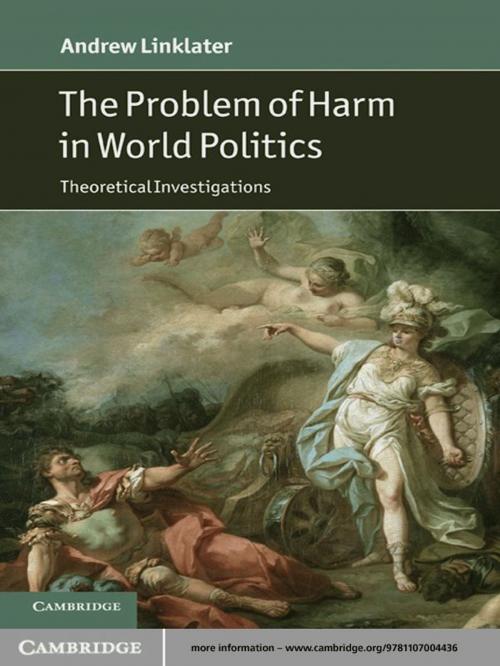The Problem of Harm in World Politics
Theoretical Investigations
Nonfiction, Social & Cultural Studies, Political Science, International, International Relations, Religion & Spirituality, Philosophy| Author: | Andrew Linklater | ISBN: | 9781139036221 |
| Publisher: | Cambridge University Press | Publication: | February 10, 2011 |
| Imprint: | Cambridge University Press | Language: | English |
| Author: | Andrew Linklater |
| ISBN: | 9781139036221 |
| Publisher: | Cambridge University Press |
| Publication: | February 10, 2011 |
| Imprint: | Cambridge University Press |
| Language: | English |
The need to control violent and non-violent harm has been central to human existence since societies first emerged. This book analyses the problem of harm in world politics which stems from the fact that societies require the power to harm in order to defend themselves from internal and external threats, but must also control the capacity to harm so that people cannot kill, injure, humiliate or exploit others as they please. Andrew Linklater analyses writings in moral and legal philosophy that define and classify forms of harm, and discusses the ways in which different theories of international relations suggest the power to harm can be controlled so that societies can co-exist with the minimum of violent and non-violent harm. Linklater argues for new connections between the English School study of international society and Norbert Elias' analysis of civilizing processes in order to advance the study of harm in world politics.
The need to control violent and non-violent harm has been central to human existence since societies first emerged. This book analyses the problem of harm in world politics which stems from the fact that societies require the power to harm in order to defend themselves from internal and external threats, but must also control the capacity to harm so that people cannot kill, injure, humiliate or exploit others as they please. Andrew Linklater analyses writings in moral and legal philosophy that define and classify forms of harm, and discusses the ways in which different theories of international relations suggest the power to harm can be controlled so that societies can co-exist with the minimum of violent and non-violent harm. Linklater argues for new connections between the English School study of international society and Norbert Elias' analysis of civilizing processes in order to advance the study of harm in world politics.















